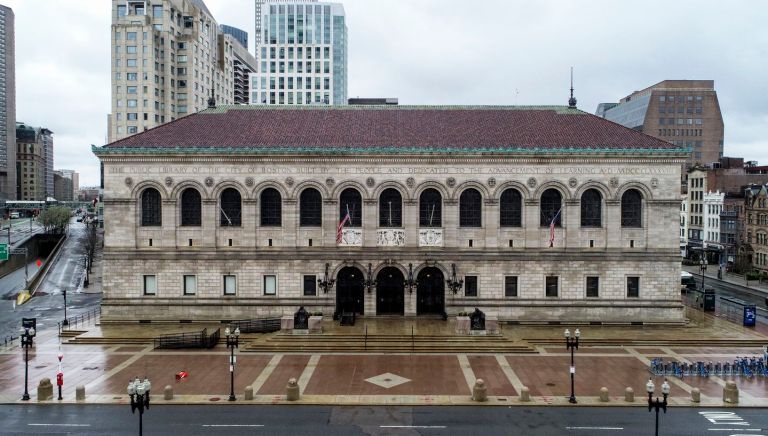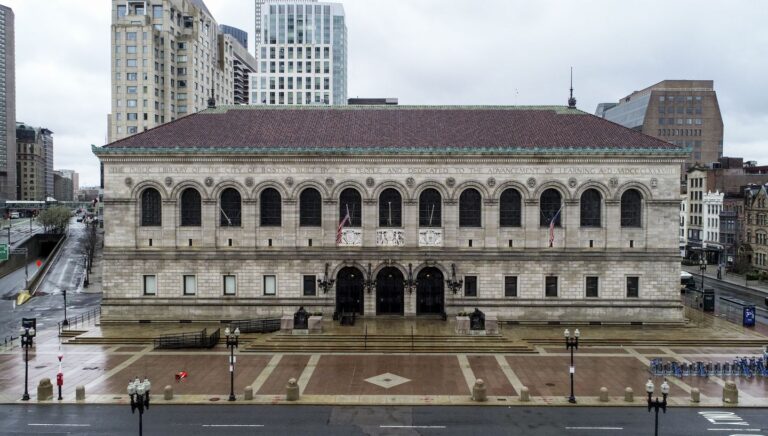Established in 1848 by an act of the Great and General Court of Massachusetts, the Boston Public Library (BPL) was the first large free municipal library in the United States. In 1839, French ventriloquist M. Nicholas Marie Alexandre Vattemare became the original advocate for a public library in Boston when he proposed the idea of a book and prints exchange between American and French libraries. The Mayor of the City of Boston, Josiah Quincy, Jr., first president of the Board of Trustees, Edward Everett, and his successor, George Ticknor, were also at the forefront of the library’s establishment.
Boston Public Library’s first building of its own was a former schoolhouse located on Mason Street that opened to the public on March 20, 1854. However, it was obvious from opening day that the quarters were inadequate for the library’s collection of sixteen thousand volumes. In December 1854, library commissioners were authorized to locate a new building on a lot on Boylston Street, which opened in 1858 at 55 Boylston Street with seventy thousand volumes. Twenty years later, as the library outgrew that space, the Trustees asked the state legislature for a plot in the newly filled Back Bay. On April 22, 1880, the state granted the City of Boston a lot at the corner of Dartmouth and Boylston Streets.
Related
Sorry, no records were found. Please adjust your search criteria and try again.
Sorry, unable to load the Maps API.


